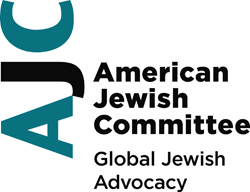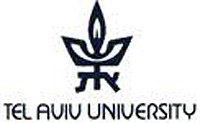American Jewish Committee eulogizes former U.N. Secretary General Kofi Annan
 The American Jewish Committee, the global Jewish advocacy organization, mourns the passing of Kofi Annan, the Ghanaian diplomat and Nobel laureate who served with distinction as Secretary General of the United Nations from 1997 to 2006.
The American Jewish Committee, the global Jewish advocacy organization, mourns the passing of Kofi Annan, the Ghanaian diplomat and Nobel laureate who served with distinction as Secretary General of the United Nations from 1997 to 2006.
“Kofi Annan, an individual of exceptional dignity, grace, and commitment, demonstrated that positively changing the UN posture towards Israel and the Jewish people is possible,” said AJC CEO David Harris. “While overcoming the world body’s endemic biases is an ongoing, long-term challenge, his singular contributions were pathbreaking.”
Annan, the seventh UN Secretary General, was the first one to use the word “Holocaust,” the first to address the threat of anti-Semitism, the first to advocate for ending the world body’s unjust treatment of Israel, and the first to focus on the tragic fate of Raoul Wallenberg, the Swedish diplomat who saved thousands of Hungarian Jews during the war and then was seized by the Soviets, never to be heard from again.
“The United Nations is, I hope and believe, what it always should be – a place where Jews can feel at home,” Annan said in his address to an audience of nearly 3,000 people at the AJC Centennial Dinner, in 2006, in Washington, D.C. “I hope that within my lifetime, just as in this country, where Jews are accepted without question as full citizens, by all their fellow citizens, so Israel will be accepted without question as a member by the whole family of nations.”
He noted that the “United Nations is fully engaged in the struggle against anti-Semitism and other forms of discrimination,” and that the UN marked on January 27 its “first annual international day of remembrance of victims of the Holocaust.”
Annan was a fervent advocate for including Israel in one of the world body’s five regional groups, a prerequisite to seeking election to one of the UN Security Council’s ten rotating seats and other significant posts in the UN system. Israel had been excluded since it joined the UN in 1949.
“We must uphold the principle of equality among member states. I shall keep encouraging all concerned to find a solution,” Annan declared at another AJC-hosted dinner, this time in New York in December 1999.
Spurred by his vision, and with the support of a multiyear AJC advocacy campaign, Israel was finally admitted to the West European and Others Group (WEOG) in New York in 2000, and to WEOG in Geneva in 2013. — From American Jewish Committee
*
2 Universities and Israel Antiquities Authority map ancient migrations to Israel
 An international team of researchers from Tel Aviv University, the Israel Antiquities Authority and Harvard University has discovered that waves of migration from Anatolia and the Zagros mountains (today’s Turkey and Iran) to the Levant helped develop the Chalcolithic culture that existed in Israel’s Upper Galilee region some 6,500 years ago.
An international team of researchers from Tel Aviv University, the Israel Antiquities Authority and Harvard University has discovered that waves of migration from Anatolia and the Zagros mountains (today’s Turkey and Iran) to the Levant helped develop the Chalcolithic culture that existed in Israel’s Upper Galilee region some 6,500 years ago.
The study is one of the largest ancient DNA studies ever conducted in Israel and for the first time sheds light on the origins of the Chalcolithic culture in the Levant, approximately 6,000-7,000 years ago.
Research for the study was led by Dr. Hila May and Prof. Israel Hershkovitz of the Department of Anatomy and Anthropology, Dan David Center for Human Evolution and Biohistory Research, at TAU’s Sackler Faculty of Medicine; Dr. Dina Shalem of the Institute for Galilean Archaeology at Kinneret College and the Israel Antiquities Authority; and Éadaoin Harney and Prof. David Reich of Harvard University. It was published today in Nature Communications.
In 1995, Zvi Gal, Dina Shalem and Howard Smithline of the Israel Antiquities Authority began excavating the Peqi’in Cave in northern Israel, which dates to the Chalcolithic Period in the Levant. The team unearthed dozens of burials in the natural stalactite cave that is 17 meters long and 5-8 meters wide.
The large number of unique ceramic ossuaries and the variety of burial offerings discovered in the cave suggest that it was once used as a mortuary center by the local Chalcolithic people.
“The uniqueness of the cave is evident in the number of people buried in it — more than 600 — and the variety of ossuaries and jars and the outstanding motifs on them, including geometric and anthropomorphic designs,” Dr. Shalem says. “Some of the findings in the cave are typical to the region, but others suggest cultural exchange with remote regions.
“The study resolves a long debate about the origin of the unique culture of the Chalcolithic people. Did the cultural change in the region follow waves of migration, the infiltration of ideas due to trade relations and/or cultural exchange, or local invention? We now know that the answer is migration.”
The researchers subjected 22 of the skeletons excavated at Peqi’in, dating to the Chalcolithic Period, to a whole genome analysis.
“This study of 22 individuals is one of the largest ancient DNA studies carried out from a single archaeological site, and by far the largest ever reported in the Near East,” Dr. May says.
“The genetic analysis provided an answer to the central question we set out to address,” says Prof. Reich. “It showed that the Peqi’in people had substantial ancestry from northerners — similar to those living in Iran and Turkey — that was not present in earlier Levantine farmers.”
“Certain characteristics, such as genetic mutations contributing to blue eye color, were not seen in the DNA test results of earlier Levantine human remains,” adds Dr. May. “The chances for the success of such a study seemed slim, since most of the ancient DNA studies carried out in Israel have failed due to difficult climatic conditions in the region that destroy DNA.”
“Fortunately, however, human DNA was preserved in the bones of the buried people in Peqi’in cave, likely due to the cool conditions within the cave and the limestone crust that covered the bones and preserved the DNA,” says Prof. Hershkovitz. — From Tel Aviv University
*
Preceding items culled from news releases. Send yours to editor@sdjewishworld.com